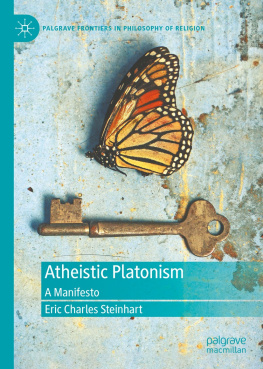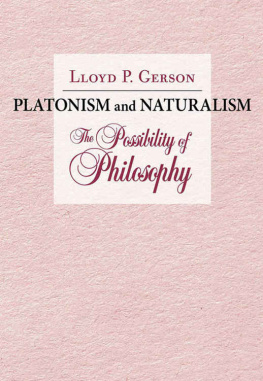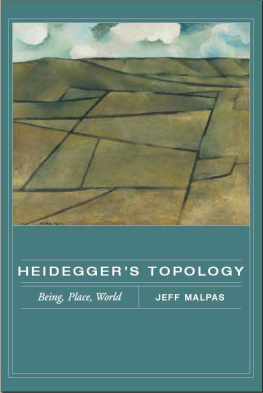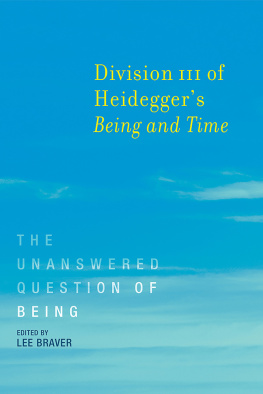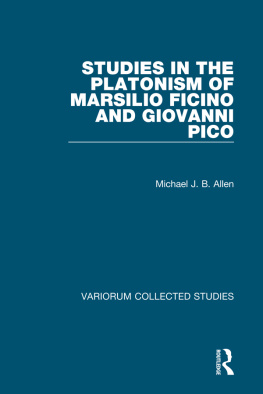Ralkowski - Heideggers Platonism
Here you can read online Ralkowski - Heideggers Platonism full text of the book (entire story) in english for free. Download pdf and epub, get meaning, cover and reviews about this ebook. year: 2009, publisher: Bloomsbury UK, genre: Religion. Description of the work, (preface) as well as reviews are available. Best literature library LitArk.com created for fans of good reading and offers a wide selection of genres:
Romance novel
Science fiction
Adventure
Detective
Science
History
Home and family
Prose
Art
Politics
Computer
Non-fiction
Religion
Business
Children
Humor
Choose a favorite category and find really read worthwhile books. Enjoy immersion in the world of imagination, feel the emotions of the characters or learn something new for yourself, make an fascinating discovery.

Heideggers Platonism: summary, description and annotation
We offer to read an annotation, description, summary or preface (depends on what the author of the book "Heideggers Platonism" wrote himself). If you haven't found the necessary information about the book — write in the comments, we will try to find it.
Heideggers Platonism — read online for free the complete book (whole text) full work
Below is the text of the book, divided by pages. System saving the place of the last page read, allows you to conveniently read the book "Heideggers Platonism" online for free, without having to search again every time where you left off. Put a bookmark, and you can go to the page where you finished reading at any time.
Font size:
Interval:
Bookmark:
Heideggers Platonism
Continuum Studies in Continental Philosophy
Series Editor: James Fieser, University of Tennessee at Martin, USA
Continuum Studies in Continental Philosophy is a major monograph series from Continuum. The series features first-class scholarly research monographs across the field of Continental philosophy. Each work makes a major contribution to the field of philosophical research.
Adornos Concept of Life, Alastair Morgan
Badiou, Marion and St Paul, Adam Miller
Being and Number in Heideggers Thought, Michael Roubach
The Crisis in Continental Philosophy, Robert Piercey
Deleuze and Guattari, Fadi Abou-Rihan
Deleuze and the Genesis of Representation, Joe Hughes
Deleuze, Guattari and the Production of the New, edited by Simon OSullivan and Stephen Zepke
Derrida, Simon Morgan Wortham
Derrida and Disinterest, Sean Gaston
The Domestication of Derrida, Lorenzo Fabbri
Encountering Derrida, edited by Simon Morgan Wortham and Allison Weiner
Foucaults Heidegger, Timothy Rayner
Gadamer and the Question of the Divine, Walter Lammi
Heidegger and a Metaphysics of Feeling, Sharin N. Elkholy
Heidegger and Aristotle, Michael Bowler
Heidegger and Happiness, Matthew King
Heidegger and Philosophical Atheology, Peter S. Dillard
Heidegger Beyond Deconstruction, Michael Lewis
Heidegger on Language and Death, Joachim L. Oberst
Heidegger, Politics and Climate Change, Ruth Irwin
Heidegger, Work, and Being, Todd S. Mei
Heideggers Contributions to Philosophy, Jason Powell
Heideggers Early Philosophy, James Luchte
Heideggers Platonism, Mark A. Ralkowski
The Irony of Heidegger, Andrew Haas
Merleau-Pontys Phenomenology, Kirk M. Besmer
Nietzsches Ethical Theory, Craig Dove
Nietzsches Thus Spoke Zarathustra, edited by James Luchte
The Philosophy of Exaggeration, Alexander Garcia Dttmann
Whos Afraid of Deleuze and Guattari? Gregg Lambert
iek and Heidegger, Thomas Brockelman
Mark A. Ralkowski

Continuum International Publishing Group
The Tower Building | 80 Maiden Lane |
11 York Road | Suite 704 |
London SE1 7NX | New York, NY 10038 |
www.continuumbooks.com
Mark A. Ralkowski 2009
All rights reserved. No part of this publication may be reproduced or transmitted in any form or by any means, electronic or mechanical, including photocopying, recording, or any information storage or retrieval system, without prior permission in writing from the publishers.
British Library Cataloguing-in-Publication Data
A catalogue record for this book is available from the British Library.
eISBN-13: 978-1-4411-0064-1
Library of Congress Cataloging-in-Publication Data
Ralkowski, Mark.
Heideggers platonism / Mark A. Ralkowski.
p. cm.
Includes bibliographical references.
1. Plato. 2. Platonists. 3. Heidegger, Martin, 1889-1976. I. Title.
B395.R325 2009
193dc22
2009008247
Typeset by Newgen Imaging Systems Pvt Ltd, Chennai, India
Printed and bound in Great Britain by the MPG Books Group
For Ratna and Iris
The beginning of Western philosophy was without a system, but yet, or rather especially for that reason, this philosophizing was thoroughly systematic, that is, directed and supported by a quite definite inner jointure and order of questioning... Thus whoever speaks of Platos system... is falsifying history and blocking the way to the inner movement of this philosophizing and the understanding of its claim to truth.
Heidegger, Schellings Treatise
Calling Heidegger a Platonist is a bit like calling Plato an empiricist. Its the sort of claim that earns you a failing grade in an introduction to philosophy course. If you know anything about Heideggers philosophy, then, you might be wondering, Whats the deal with the title of this book? Good question. The argument in the following eight chapters is my full answer, but let me say a few things straight away to clear up any immediate confusion.
First, the meaning of Platonism is not as obvious as many of us suspect. We tend to define Platonism in terms of the theory of Forms and the immortality of the soul. Many of us take it for granted that Plato was committed to these and other doctrines, at least for a good part of his life and career, and that these doctrines constitute his philosophyto know them is to possess Platonic philosophical knowledge. However, as I show in the first four chapters of this book, it is time to reconsider the nature of Platos philosophy. If we reconstruct the meaning of Platonism, using Heidegger as our unlikely guide, the apparent oxymoron in Heideggers Platonism disappears. In fact, I make the case that Heideggers interpretation of Plato in his lecture course The Essence of Truth is both an interesting solution to the problem of interpreting Platos philosophy, and, for Heidegger, the discovery of important concepts in his own later thought. Not only should we refuse to take Heidegger at his word when he vilifies Plato in his account of the history of Western thought, therefore; we also need to look again at the unparalleled influence that Plato exerted on Heideggers thinking during this critical time in his life.
Second, if we set aside the differences between Platos metaphysics, traditionally understood, and Heideggers post-metaphysical philosophy of Being, there is actually a sense in which it is not uncommon to call Heidegger a Platonist. Some scholars have looked at Heideggers political aspirations in 1933 and suggested that he was working and writing under the influence of the political utopianism he discovered in Platos Republic. One cannot legislate authenticity, and one cannot command Being to send us a new epoch; Heidegger, therefore, must have been motivated by something foreign, something contrary to his most basic philosophical commitments, something utopian and forgetful of mans finitudesomething like Platos political ideology in the Republic. This is a common line of reasoning in the literature on Heideggers politics, but I argue that it is fundamentally mistaken, because it makes unwarranted assumptions about Platos politics. Plato was a dark and cynical political pessimist, who thought it challenging enough to lead a single person out of the cave, not a utopian social engineer like Heidegger, who tried to lead a collective breakout of the cave by means of nationwide, nihilism-ending educational reform.
In other words, this book is an attempt to reverse several well-entrenched assumptions. Most people familiar with the Heidegger-Plato relationship would say that Heideggers politics, but not his philosophy of Being, was Platonic. My argument is that just the opposite is true.
Like many people in Academia, I was brought into my field, and then into my profession, by a person who turned my life upside-down. Bill Prior introduced me to Plato and effectively converted me to philosophy when I was a first-year undergraduate. After reading about the sea of beauty in the Symposium, and then hiking the trails of Yosemite and the Drakensberg Mountains of South Africa, I was hooked. I had fallen in love with the vision of life that Plato describes in his dialogues. I would like to thank Bill Prior for helping me develop a sense of Platos philosophy, for showing me the significance of the relationship between Plato and Alcibiades, and for being an important mentor and friend while I lived abroad in Africa and developed my research in graduate school. If it werent for him, I would have produced very different work; sometimes I think I might have
Next pageFont size:
Interval:
Bookmark:
Similar books «Heideggers Platonism»
Look at similar books to Heideggers Platonism. We have selected literature similar in name and meaning in the hope of providing readers with more options to find new, interesting, not yet read works.
Discussion, reviews of the book Heideggers Platonism and just readers' own opinions. Leave your comments, write what you think about the work, its meaning or the main characters. Specify what exactly you liked and what you didn't like, and why you think so.

